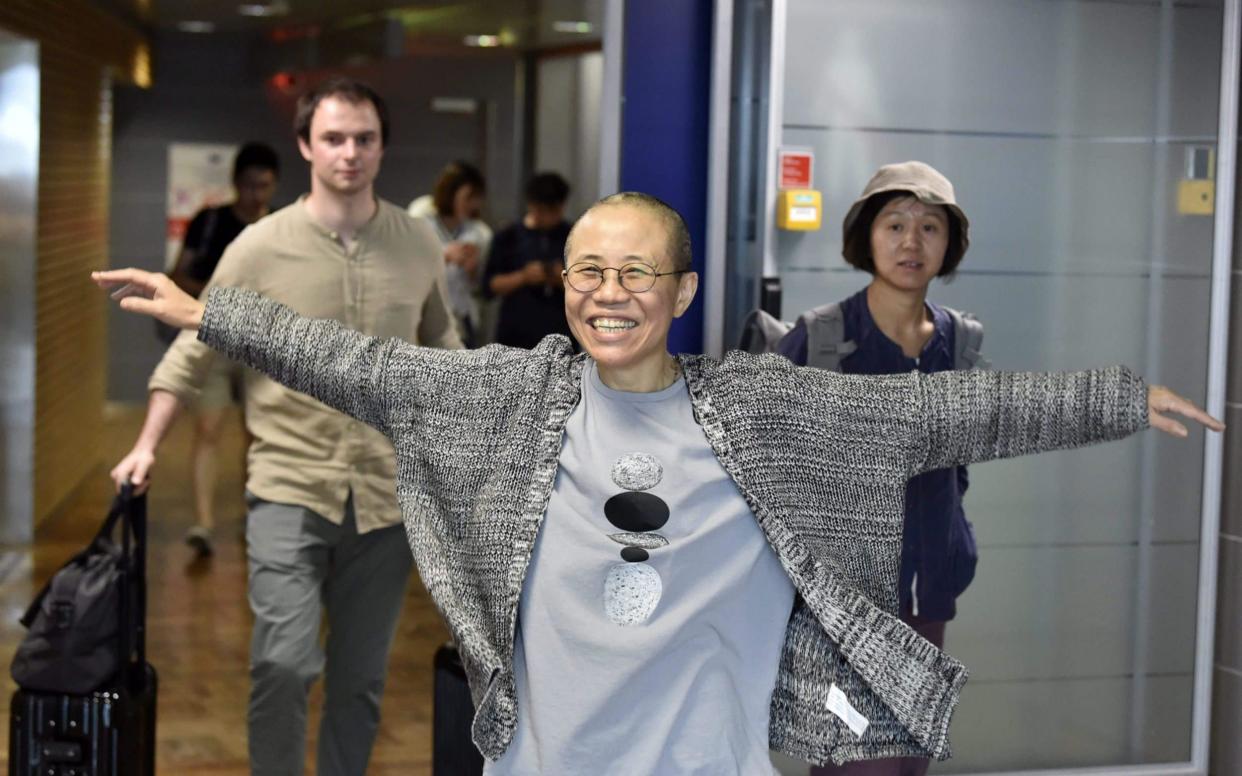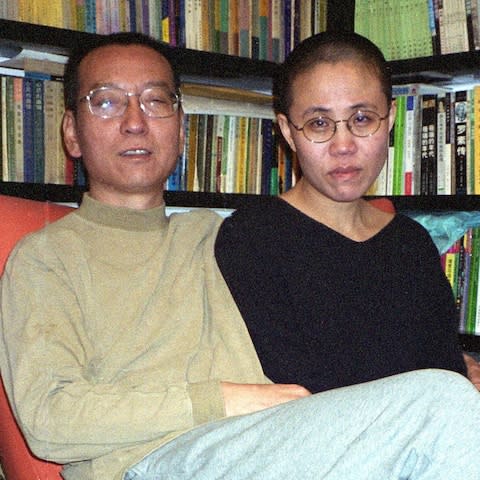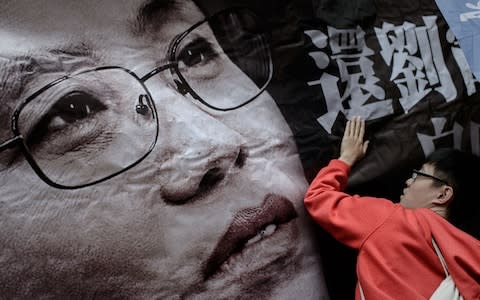Widow of late Chinese dissident Liu Xiaobo allowed to leave China for Europe

China has allowed the widow of Chinese Nobel Peace Prize laureate Liu Xiaobo to be freed from house arrest and leave for Berlin, her relatives and close friends said, ending an eight-year ordeal that drove the poet into depression and drew intense criticism of Beijing's human rights record.
China's foreign ministry confirmed that Liu Xia traveled to Germany for medical treatment in accordance with her will. Ministry spokeswoman Hua Chunying told a regular briefing that she had no further information to offer on the case.
As the artist stepped off the plane in transit in Helsinki, she spread her arms and grinned widely at a waiting photographer.
The release of Liu Xia, who has never been charged with any crime, is the result of years of campaigning by Western governments and activists and comes just days before the one-year anniversary of the death of dissident Liu Xiaobo while he was serving a prison sentence for inciting subversion.
Liu Xia's brother, Liu Hui, wrote on a social media site: "Sister has already left Beijing for Europe at noon to start her new life. Thanks to everyone who has helped and cared for her these few years. I hope from now on her life is peaceful and happy."
Liu's release comes as Chinese Premier Li Keqiang is visiting Germany, a country that in May said it would welcome the widow after a recording was released of her crying in desperation and indicating she had lost hope of being able to leave China.
Close friends Gao Yu, a veteran journalist in Beijing, and Wu Yangwei, better known by his penname Ye Du, said Liu Xia was on a Finnair flight to Berlin that left Tuesday morning. Wu said he spoke to Liu Xia's older brother, Liu Tong.
"Liu Xia has been kept isolated for so many years," said Wu by phone from the southern city of Guangzhou. "I hope that being in a free country will allow Liu Xia to heal her longstanding traumas and wounds."
For years Liu Xia has expressed a preference to go to Germany, where she has a circle of friends from China's dissident and literary circles. German Chancellor Angela Merkel meets regularly with dissidents during visits to China and has raised Liu Xia's case with Chinese officials, including during a visit in May, people familiar with the matter said.
When Liu Xiaobo died a year ago, Germany's Foreign Minister Sigmar Gabriel urged the Chinese government to let Liu Xia and her brother leave the country for Germany. "She and her brother, Liu Hui, should immediately be allowed to leave for Germany or another country of their choice if they wish to," Gabriel had said.
China sentenced Liu Xiaobo in December 2009 to 11 years' imprisonment on charges of inciting subversion of state power after he helped write a manifesto calling for political and economic liberalization.

Days after the Nobel Committee awarded him the Peace Prize in 2010, infuriating Beijing, Chinese authorities put Liu Xia under house arrest. State security assigned guards around-the-clock outside Liu's Beijing home and restricted her access to the internet and the outside world, allowing her only occasional phone calls with a small circle of friends.
The news of her release was celebrated by China's beleaguered community of activists, who have been at the centre of an expansive crackdown on civil society, rights lawyers and other independent groups the administration of President Xi Jinping has deemed a threat to the ruling Communist Party's grip on power.
Several expressed concerns about the fate of her brother, Liu Hui, who has previously been convicted of fraud and sentenced to jail in a case supporters said was a form of retaliation against the attention the Nobel laureate was getting.
"This is fantastic news, something we have all been hoping against hope for a long time," said Hu Jia, a family friend and Beijing-based activist. "But we still fear for Liu Hui, who is being kept in the country as a guarantee so that Liu Xia does not speak out abroad."

Liu's friends in recent months have said her mental condition has steadily deteriorated, particularly since the death of her husband.
"Xiaobo is gone, and there's nothing in the world for me now," Liu said tearfully. "It's easier to die than live. Using death to defy could not be any simpler for me."
An accomplished artist and poet, Liu told Associated Press reporters during an unexpected visit to her home in 2012 that she had anticipated China would punish her for her husband's Nobel award, but she had not expected to be kept under "Kafkaesque" house arrest.

